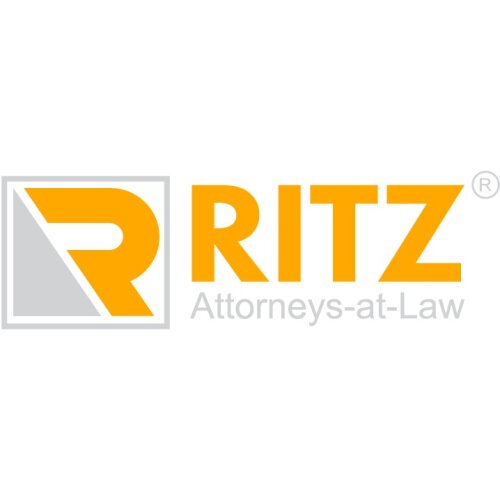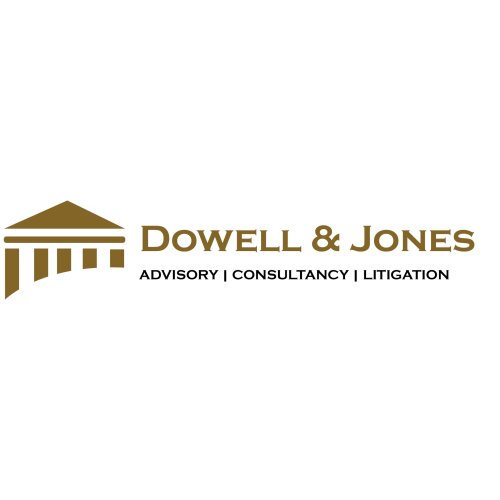Best Tax Increment Financing Lawyers in Malawi
Share your needs with us, get contacted by law firms.
Free. Takes 2 min.
Or refine your search by selecting a city:
List of the best lawyers in Malawi
About Tax Increment Financing Law in Malawi
Tax Increment Financing (TIF) is a financial tool that local governments in Malawi can use to encourage economic development in specific areas. The concept involves capturing the future tax benefits of real estate improvements to pay for the present cost of those improvements. In Malawi, TIF is used to fund public projects such as infrastructure improvements and community facilities, aiming to stimulate private investment and revitalize underdeveloped or blighted areas.
Why You May Need a Lawyer
Legal advice is often necessary when dealing with Tax Increment Financing due to the complex nature of tax obligations and development agreements. You may need a lawyer if you're a property developer interested in a TIF district, a government official drafting TIF proposals, or a resident concerned about how TIF will affect your community and tax responsibilities. Additionally, legal assistance may be crucial in navigating public hearings, compliance with statutory requirements, and negotiation of financial terms within TIF agreements.
Local Laws Overview
The legal framework governing Tax Increment Financing in Malawi is primarily outlined in the Local Government Act and subsequent regulations. Key aspects include the creation of TIF districts, procedures for public consultation, requirements for economic impact analysis, and methodologies for calculating tax increments. Additionally, the law stipulates the responsibilities of local authorities in overseeing TIF projects and ensuring transparency and accountability in their implementation.
Frequently Asked Questions
What is the purpose of Tax Increment Financing?
Tax Increment Financing aims to fund infrastructure and community improvement projects that spur economic development and private investment in designated areas.
How does TIF impact local taxes?
TIF uses the increased property tax revenue from new development to finance public projects, without immediately raising current tax rates for local residents.
Who can propose a TIF district?
Typically, local government bodies are responsible for proposing and establishing TIF districts in accordance with established legal procedures.
Can TIF funds be used for any type of project?
No, TIF funds are generally restricted to projects that promote public improvements, such as roads, utilities, and public facilities, which are necessary for the development of the designated area.
Is community consultation required in the TIF process?
Yes, community consultation and public hearings are crucial elements of the TIF establishment process to ensure transparency and public involvement.
How long does a TIF district last?
The duration of a TIF district can vary, but it typically lasts until the public projects funded by the TIF have been paid off or as determined by local statutes.
What are the risks of TIF for local governments?
Risks include project underperformance, potential loss of tax revenue in other sectors, and public opposition if perceived benefits are not realized community-wide.
How does TIF encourage private investment?
TIF reduces the financial burden on private developers by covering essential public improvements, thus making developments more feasible and attractive.
Can TIF funds be used for maintenance of public improvements?
TIF funds are generally used for capital improvements and may not cover ongoing maintenance unless otherwise specified in local arrangements.
Are there limits on the amount of TIF funding available?
The amount of TIF funding is limited by the anticipated increase in property tax revenues and local government budget constraints.
Additional Resources
For further information on Tax Increment Financing, individuals can consult the Ministry of Local Government and Rural Development, relevant municipal councils, or legal organizations specializing in tax and financial law. Local economic development agencies may also offer guidance, and engagement with community forums dedicated to urban planning might provide additional insights.
Next Steps
If you require legal assistance with Tax Increment Financing, consider the following steps: 1) Reach out to a lawyer specializing in real estate or tax law, 2) Contact local government offices to understand available resources and processes, 3) Attend public meetings related to proposed TIF projects in your area, and 4) Gather as much information as possible about the local legal framework and specific TIF projects of interest. These steps will help you make informed decisions and effectively engage with TIF opportunities or concerns.
Lawzana helps you find the best lawyers and law firms in Malawi through a curated and pre-screened list of qualified legal professionals. Our platform offers rankings and detailed profiles of attorneys and law firms, allowing you to compare based on practice areas, including Tax Increment Financing, experience, and client feedback.
Each profile includes a description of the firm's areas of practice, client reviews, team members and partners, year of establishment, spoken languages, office locations, contact information, social media presence, and any published articles or resources. Most firms on our platform speak English and are experienced in both local and international legal matters.
Get a quote from top-rated law firms in Malawi — quickly, securely, and without unnecessary hassle.
Disclaimer:
The information provided on this page is for general informational purposes only and does not constitute legal advice. While we strive to ensure the accuracy and relevance of the content, legal information may change over time, and interpretations of the law can vary. You should always consult with a qualified legal professional for advice specific to your situation.
We disclaim all liability for actions taken or not taken based on the content of this page. If you believe any information is incorrect or outdated, please contact us, and we will review and update it where appropriate.
Browse tax increment financing law firms by city in Malawi
Refine your search by selecting a city.
















